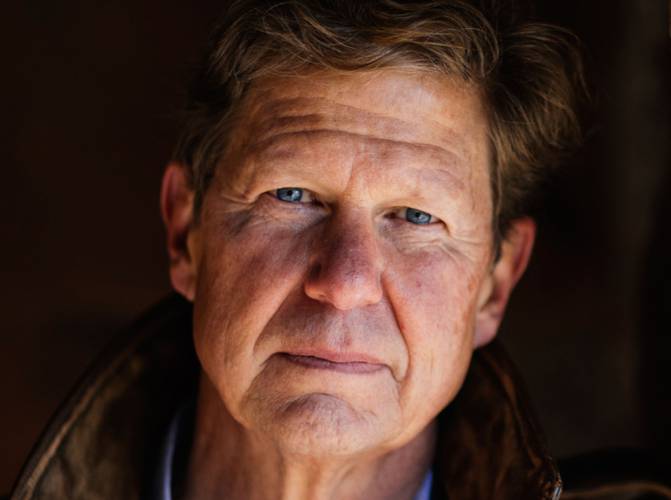The tragedy of evangelical anti-feminism

Randall Balmer. Copyright (c) Valley News. May not be reprinted or used online without permission. Send requests to permission@vnews.com.
| Published: 05-03-2024 10:21 PM |
I wish I could say that the death of Beverly LaHaye on April 14 signaled the end of an era, but I’m afraid that’s not the case.
Please understand that I’m not reveling in her demise (or anyone else’s), but she together with antifeminist Phyllis Schlafly, who died in 2016, did untold damage to women’s rights, especially among evangelicals, thereby reversing a rich history of evangelical support for women’s equality.
Whereas Schlafly was Roman Catholic and led the assault on the proposed Equal Rights Amendment to the Constitution, LaHaye served as pincer by helping to organize evangelical opposition. Together, they arguably set back the cause of women’s equality by decades, even centuries.
Born in Detroit in 1929, Beverly Jean Davenport met her husband, Tim LaHaye, when the two were students at Bob Jones College (now University), the arch-fundamentalist school in South Carolina. Following their marriage in 1947, Beverly initially became a housewife, a role she resented, recalling in 1976 “the endless little tasks that had to be repeated over and over again and seemed so futile.”
She soon dropped out of college to work and support the family.
The LaHayes moved to a church in South Carolina, then to Minneapolis and on to San Diego in 1956, where Tim became pastor of Scott Memorial Baptist Church and Beverly became the church secretary. Tim LaHaye went on to do his own share of damage. He was one of the original board members for Jerry Falwell’s Moral Majority, and he wrote a series of apocalyptic books with Jerry Jenkins, known collectively as Left Behind.
According to Beverly LaHaye, what prompted her own activism was a 1978 Barbara Walters interview with Betty Friedan, author of “The Feminine Mystique,” which appeared in 1963 and set off what has come to be known as second-wave feminism.
LaHaye insisted that Friedan and other feminists like Gloria Steinem did not speak for her. She said she worried that feminists aimed “to dismantle the bedrock of American culture: the family.” Although LaHaye described herself as “a fearful, introverted person with a rather poor self-image,” she founded Concerned Women for America in 1979, the same year that Falwell established Moral Majority.
Article continues after...
Yesterday's Most Read Articles
Concerned Women for America was intended as a counterforce to the National Organization for Women. There’s no way to prove this, of course, but I’ve long suspected that this new organization of evangelical women was propelled in part, consciously or not, by antisemitism.
When Concerned Women for America moved its offices from California to Washington, D.C., LaHaye declared, “The feminists do not speak for all women in America, and C.W.A. is here in Washington to end the monopoly of feminists who claim to speak for all women.”
LaHaye and Concerned Women for America, however, did not speak for evangelicals of an earlier era. Many evangelicals in the 19th and even early 20th century advocated for women’s equality, including voting rights, at that time a radical idea. Charles Grandison Finney, the Grimké sisters, Phoebe Palmer, Sarah Lankford and others supported women’s agency as well as expanded education opportunities for women.
Biblically, they were on solid ground. Although LaHaye declared that female submission “is God’s design for woman,” Jesus treated women with kindness and compassion, not condescension. Yes, St. Paul wanted women to be submissive to their husbands, but he also said that in Christ there was no distinction between Jew and Greek, slave and free, male and female.
As Jimmy Carter has said many times in his battles with the misogynists in the Southern Baptist Convention, it’s possible to cherry pick verses from the Bible to support the subjection of women, but that misses the forest for the trees. It diminishes the broader, more capacious mandates of the gospel.
Both Schlafly and Beverly LaHaye became critical figures in the success of the Religious Right, rallying women to conservative causes, including opposition to abortion and homosexuality.
Ronald Reagan relied on the support of Concerned Women for America. “In just a few short years,” he told a rally in 1987, “you’ve become the largest politically active women’s group in the nation.” He referred to LaHaye as “one of the powerhouses on the political scene today.”
A powerhouse indeed. Sadly, not always a powerhouse for good.
Randall Balmer teaches at Dartmouth and is the author of Bad Faith: Race and the Rise of the Religious Right.

 Editorial: Dartmouth lets protesters know where they stand
Editorial: Dartmouth lets protesters know where they stand Editorial: Response to campus protests only adds fuel to the fire
Editorial: Response to campus protests only adds fuel to the fire Editorial: Chris Sununu’s moral vacuum
Editorial: Chris Sununu’s moral vacuum Editorial: Gambling tarnishes America’s sporting life
Editorial: Gambling tarnishes America’s sporting life
